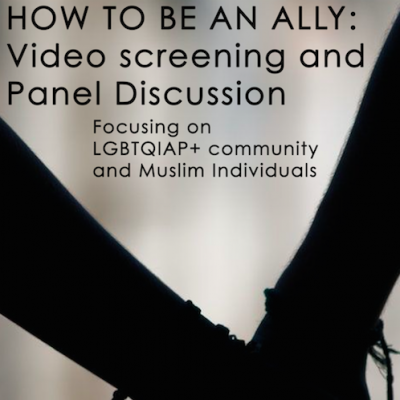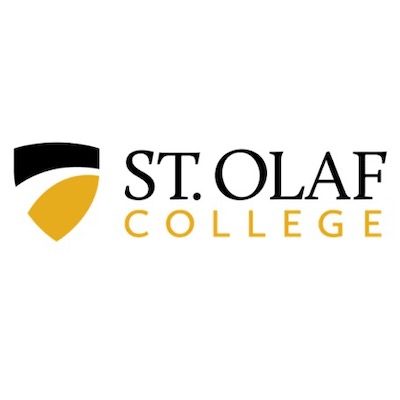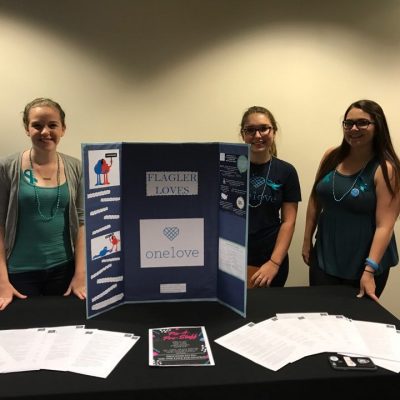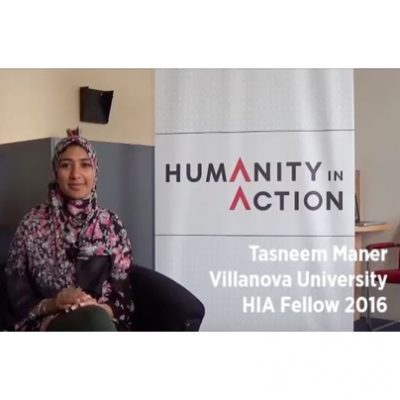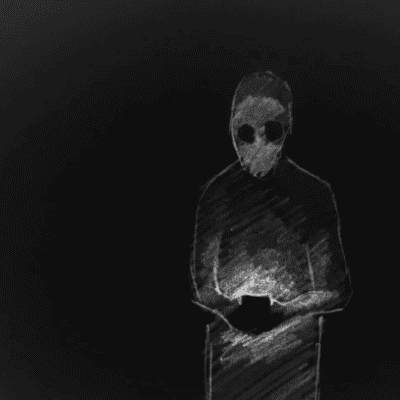Article
After Senior Fellows Merve Mert and Gage Garretson returned to the United States from their participation in the Amsterdam Fellowship, both were struck by the program’s success in presenting the historical and lived experiences of minorities in Dutch society, particularly through elevating voices from those communities. As each of them had previous experience leading dialogues on controversial topics with diverse populations, creating a project that channeled this tactic felt natural.
Merve and Gage chose to address the issue of allyship and the paralyzing fear many feel in not knowing how to combat prejudice in their daily lives. This felt particularly acute in the wake of the November 2016 elections in the United States. Both understood the struggle of how best to communicate the experiences of minoritized groups when one does not possess that identity or experience. In practice, this leaves many ignorant of how best to respond to increasing incidents of discrimination. As a result, individuals are often left with situations where minoritized groups are targeted and the impacts of the damage is compounded by well-meaning individuals who end up as bystanders, regardless of their intentions, because of a lack of information or training to respond.
Merve and Gage chose to address the issue of allyship and the paralyzing fear many feel in not knowing how to combat prejudice in their daily lives. This felt particularly acute in the wake of the November 2016 elections in the United States.
To combat this, Merve and Gage created a series of short videos accompanied with a glossary of relevant texts and articles that doubled to increase awareness and offer practical skills to provoke meaningful, informed action when witnessing discrimination.
As a result, individuals are often left with situations where minoritized groups are targeted and the impacts of the damage is compounded by well-meaning individuals who end up as bystanders, regardless of their intentions, because of a lack of information or training to respond.
They chose to use media to convey their messages for two reasons:
- As an International Student Mentor at Macalester College, Gage found success in training other mentors and students on queer issues by showing interviews he had with queer students, who were able to speak frankly and honestly about their experiences;
- In addition, both fellows wanted the project to survive beyond their departure from university and evolve with successive generations of students at St. Olaf College.
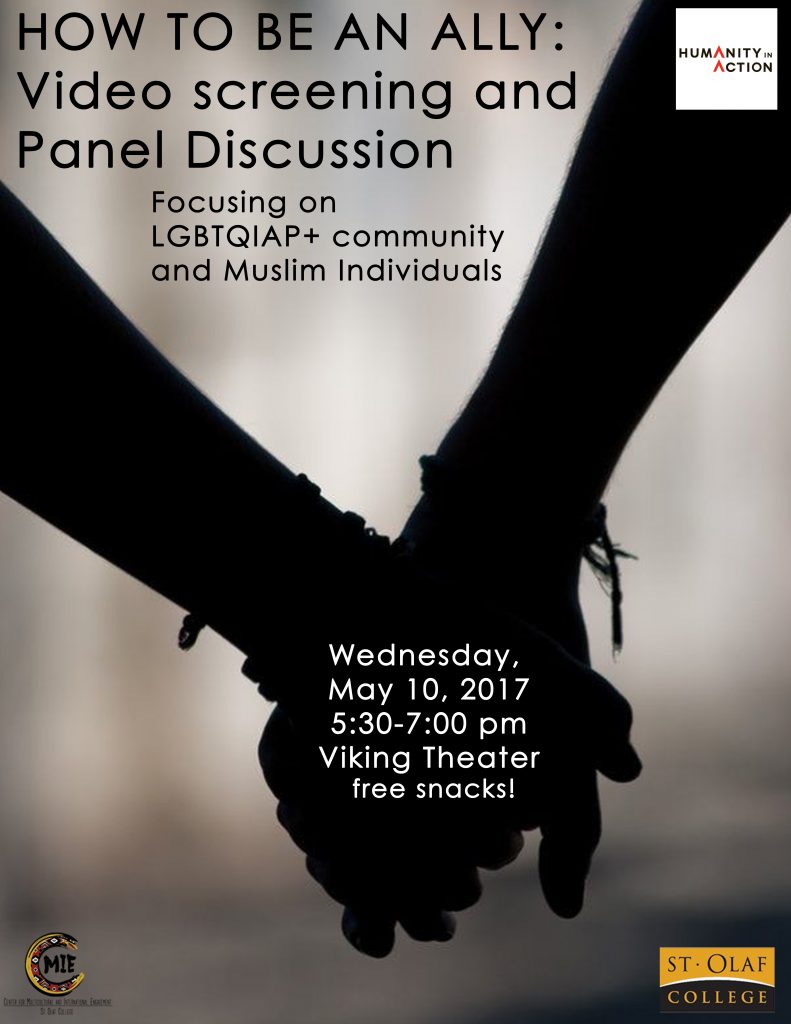
Both fellows wanted the products of this project to be tangible so that people would take away skills to use in their daily lives, rather than just presenting a thought exercise. The short videos included interviews with individuals from the communities of focus as well as trained professionals offering quick tips, vocabulary lessons, and other necessary tools to aid someone in either responding when witnessing harassment or wishing to actively support a community.
During this phase, they chose to focus on discrimination against LGBTQIAP+ individuals and Muslims, to combat growing aggression on-and-off campuses against these populations, as well as to highlight their own experiences in these communities. After reaching out to relevant campus groups and organizations at St. Olaf College, we formed four teams to delegate responsibilities:
- Production team
- LGBTQIAP+ allyship team
- Muslim allyship team
- Taylor Center for Equity and Inclusion’s Program Assistants
Merve and Gage held bi-monthly meetings during the brainstorming and preparation phases. Information was gathered and collated through consulting with professors, staff members, and student leaders. In deciding the questions to ask in the interviews, they sent out surveys across campus to create a pool of questions pertaining to allyship for interviewees to focus on.
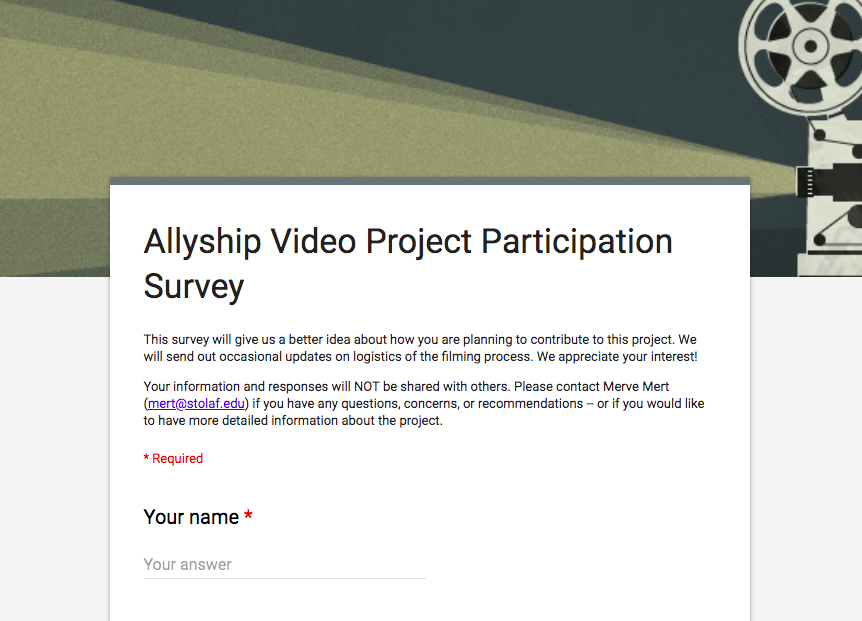
In May 2017, their two short videos (one on LGBTQIAP+ allyship and another on Muslim allyship) premiered at St. Olaf College. The screening event included a short presentation on the origins and inspirations for their project, followed by video viewings, and ending with a guided discussion on allyship, inclusivity, and awareness raising. The screening and discussion afterwards were widely attended by students, staff members, and faculty.
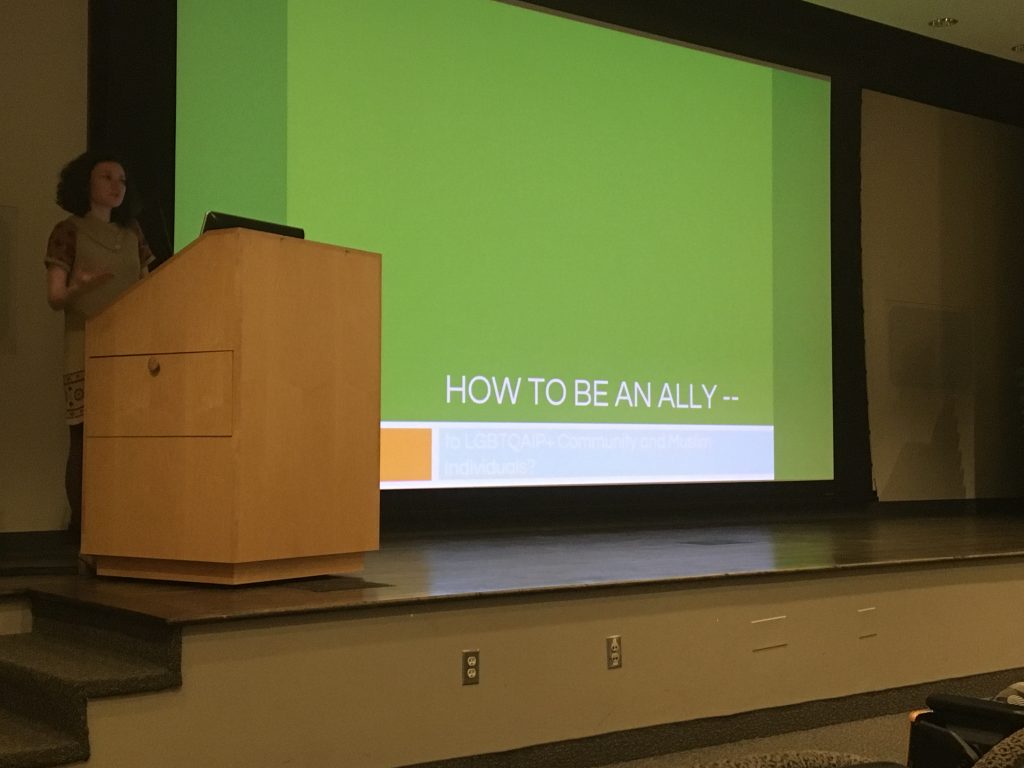
Gage and Merve initiated this project, but the goal was always to open it up to the St. Olaf community to become a part of it and further their efforts. Since the premiere, multiple campus offices have expressed interest in promoting and utilizing the videos for training and discussion purposes, including during orientation week for new students. If you are interested in getting involved, please contact the Taylor Center.
“This project has the potential to have a long-lasting impact. And though the needs for such discourses inevitably change over time, we believe that the benefits of this framing will extend beyond this campus and is flexible enough in nature to accommodate changes in the future.”
Merve and Gage want to thank the following student organizations for their participation in support in realizing this project: the Gender and Sexuality Center, GLOW!, the Muslim Student Association, the Interfaith Coalition for Peace and Justice, the Film Production Society, and the Blue Key Honor Society.

